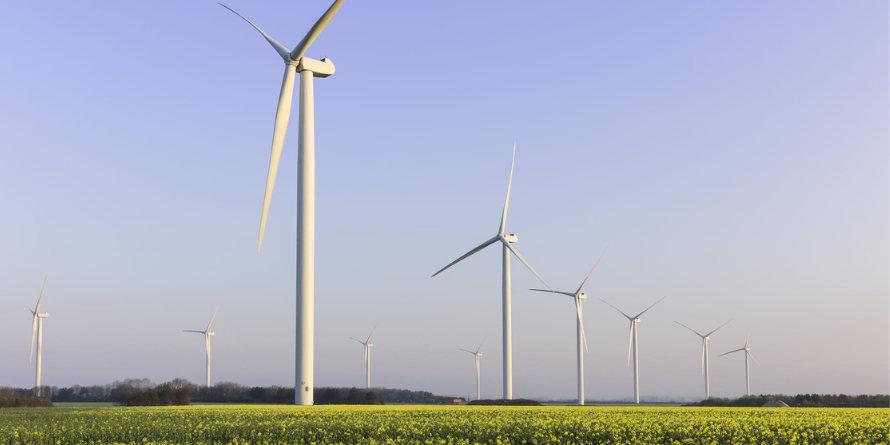Posted on: 18/07/2019
After National Grid’s 2019 Future Energy Scenarios Report was published last week, Deputy Vice-President of Marketing, Mike Shirley looks at how the UK can build on the current decarbonisation path and meet the Net Zero 2050 target.
It’s great news that Government have passed legislation to ensure the UK becomes a net zero carbon emitting country by the year 2050. Everyone knows we need to decarbonise, not just in energy but in other sectors too, so it was eye-opening to see that the System Operator considers that ‘immediate action’ is required across all areas in order to meet the net zero commitment.
This is because none of the four energy scenarios presented in the report actually meet the standard required to completely decarbonise:
Community Renewables
- Summary: Decarbonising through the use of decentralised energy solutions.
- Decarbonisation target Progress: 80%
- Peak Demand: 68.7GW
- Policy Support: Support for onshore generation and storage, as well as local low-carbon schemes.
- Consumer Changes: Consumers move to electric vehicles (EVs) by 2035, with 75% of owners using smart charging to meet demand. Homes and Businesses also move to electric heating.
Two Degrees
- Summary: Decarbonising through centralised larger scale solutions.
- Decarbonisation target Progress: 80%
- Peak Demand: 72.4GW
- Policy Support: Increasing renewable capacity and funding development of new technologies such as Small Modular Nuclear Reactors.
- Consumer Changes: Consumers choose electric vehicles, whilst commercial vehicles are powered by hydrogen or natural gas. Both electric and hydrogen heating systems are used by consumers and businesses.
Consumer Evolution
- Summary: Cost-effective local energy schemes are supported.
- Decarbonisation target Progress: 58%
- Peak Demand: 74.9GW
- Policy Support: lack of clear policy hampers development of key technologies such as battery storage. 55% of total generation capacity is not on the transmission network.
- Consumer Changes: Low-carbon heat solutions are only taken up where affordable or practical. Customers opt for electric vehicles and adopt energy efficiency measures.
Steady Progression
- Summary: Decarbonising the system continues at the same rate as today centrally.
- Decarbonisation target Progress: 58%
- Peak Demand: 82.5GW
- Policy Support: Blending hydrogen into gas networks. Carbon Capture Usage and Storage development slow.
- Consumer Changes: Consumers don't adopt electric vehicles quickly enough, only becoming the most common mode of transport by 2040 and take up of low-carbon heating is limited.
What this all shows is that even by meeting the global target of keeping temperature rises by below two degrees, we won’t hit the 2050 goal, so its crucial that the pace of decarbonisation improves.
From the themes across the four scenarios we can see that the uptake of EVs in the shortest amount of time possible will be crucial, as will implementing a (decentralised) system which enables off peak charging so as to be able to meet demand. In the event of UK reaching Net Zero by 2050, the forecasts indicated a higher annual electricity demand than in any of the four scenarios, so making sure the system is smart enough to manage that will be crucial.
Policy support for renewables, battery storage and Carbon Capture and Storage (CCUS) is going to continue to be required in order to fully decarbonise the energy sector. As coal and ageing nuclear plant go offline, the use of gas peaking plant as a transitional technology should also be recognised. This flexible generation can smooth out the system issues associated with intermittent renewables – in turn allowing more renewables to be deployed.
Low carbon heating solutions will be key to ensuring net zero too. Until homes and businesses can be heated and gas appliances used with zero carbon fuel, a significant proportion of emissions will remain outstanding. It should be remembered the energy efficiency improvements make up a noticeable part of these projections too.
Achieving net zero by 2050 won’t be easy then. It’s going to take time, money and increasing consumer awareness, but if energy businesses can start working on customer solutions now, it might just reduce the need for much larger interventions later on.

 United States
United States Australia
Australia






